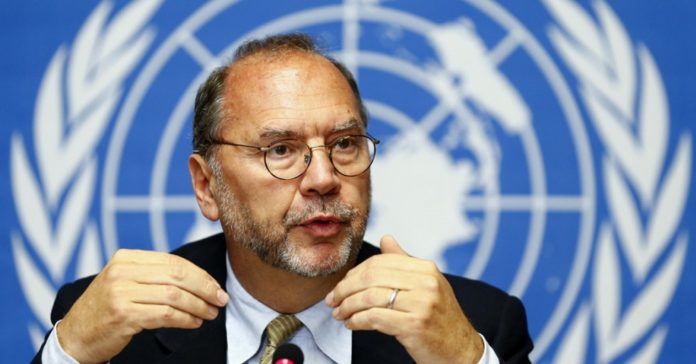
Professor Peter Piot, one of the scientists who identified Ebola in 1976, warned that the current outbreak could last through the end of 2015.
The Ebola epidemic in West Africa is likely to continue through 2015, says Professor Peter Piot, director of the London School of Hygiene and Tropical Medicine.
“This will be an epidemic with a very long tail, and a bumpy tail … we need to be ready for a long effort, a sustained effort probably the rest of 2015,” he told the BBC after recently returning from Sierra Leone.
Piot, who was one of the scientists who discovered Ebola in 1976, said he was impressed by the progress he had seen in the country, where mortality rates have fallen to as low as one in three. He credited simple treatments such as intravenous fluids and antibiotics with the improvement.
“Treatment centers have now been established across the country with British help. You don’t see any longer the scenes where people are dying in the streets,” he said.
But although the outbreak has peaked in Liberia and probably will do so in Sierra Leone too in the coming few weeks, the epidemic could have a “very long tail and a bumpy tail.”
“The Ebola epidemic is still very much there,” he said. “People are still dying, new cases are being detected.”
Much of Ebola’s devastation was ‘avoidable’
According to the latest data from the World Health Organization, more than 20,000 people have been infected with Ebola and nearly 7,900 have died from it in the current outbreak.
The hemorrhagic fever, which causes vomiting, diarrhea and bleeding, is spread by contact with bodily fluids of the sick and it has no known cure. Scientists studying Ebola since its discovery in Zaire – now Democratic Republic of Congo – in 1976 have long suspected fruit bats as being the natural hosts.
Piot, who had just returned from a research trip to Sierra Leone, said recent progress towards developing an Ebola vaccine was encouraging but that it would take a long time to actually get one through to production and into use.
In a separate interview this week, Piot spoke of his shock at how much devastation the disease has caused, telling The Independent that he “couldn’t imagine it would get so out of control“. He said poor health systems where the outbreak began meant a delay in diagnosing it, but added that the staggering spread since then was ”avoidable”.
“Because Ebola had never been detected in West Africa, I can understand why it took three months to diagnose it, particularly in a country [Guinea, where the outbreak began] where health systems are so poorly developed,” he told The Independent.
“But in March, all the stops should have been pulled out. This was avoidable. There was a slow response locally, out of ignorance and under-estimation, and the international community also was slow – except for Médecins Sans Frontières. But you can’t expect an NGO to be in charge of a whole country.” It took, as Dr. Piot grimly observed at the time, “a thousand dead Africans and two Americans who were repatriated” for the rest of the world to wake up.
